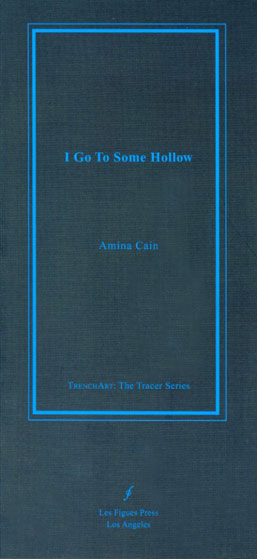The surrealist concept of dépaysement refers to an induced displacement and disorientation, of seeing the world anew. In this debut collection, the dominant mood is this sense of wonder, shot through with nervousness. Amina Cain’s travelers view their surroundings with a curious emptiness, other times ecstasy, while adrift either abroad or in a distinctly American terrain: bodies of water, fields, or forests, the banality of a heated pool or the aisles of Home Depot.
Her characters are reminiscent of Jane Bowles’s Mrs. Copperfield, lost and stumbling through Panama City in Two Serious Ladies, watching and pondering. The title of the collection’s best story, “A Body Walking Through Space,” best describes this odd detachment. Cain’s characters are uncomfortable bodies who exist and meditate in the strangeness of space. It is fitting that one of her characters is a dancer—it is the awkward, lingering dance between bodies in space, the ambiguous gesture or glance, that best distinguishes Cain’s fiction. Much like Bowles’s deliriously odd women who strike up accidental and ambivalent relationships, usually with other women, Cain’s female characters find themselves in charged situations with others. In these untranslatable encounters they want to understand the force of another’s desire. In the opening story, the astonishing “Black Wings,” the Cain narrator wishes to join an “asexual movement”:
I do everything slowly. When I am supposed to get work done I lie around and think of someone. I watch things blow along the street. That is why I want to be asexual. I am focused on the wrong things. If I am inside sitting next to an open window and I hear a dog bark, it sounds like everything I wish I were. Something pure; something honest. It makes me sad I am so diluted.
It is this sense of craving, of desiring to penetrate the unknowable, that distinguishes Cain’s stories. In the story the narrator confronts a set of black costume wings that appear on the sidewalk as if in a surrealist film (there are always these strange, sudden objects that seemingly descend from the sky). She later witnesses a fight between two women on the street, and this violence stirs her own desire to be a “normal” person (an impossibility for Cain’s dreamy eccentrics). The collection has some of the bittersweet, deadpan whimsy of Miranda July or Aimee Bender—although Cain’s stories are hungrier, more overtly erotic, reminiscent of Diane Williams. Cain also fits into the more philosophical yet decidedly still feminine tradition of Clarice Lispector’s The Passion According to G. H., the women writers of the nouveau roman. Her prose additionally calls to mind the great French Canadian writer Nicole Brossard, especially with Cain’s fixation on the sensuality of reading (Duras, Lolita).
In “A Body Walking Through Space,” a queasy yet unspoken eroticism builds between the narrator and her new roommate, as well as between the narrator and the security guard at the stationery shop where she works. (“He lay his head on my lap and put some of my dress in his mouth.”) The narrator also ponders what movement she makes the most in her life—walking, she decides—and asks this question of the other characters as well. Cain’s serious women are alternately restless and meditative, always inquiring into the stuff of life, always unraveling the everyday material.





